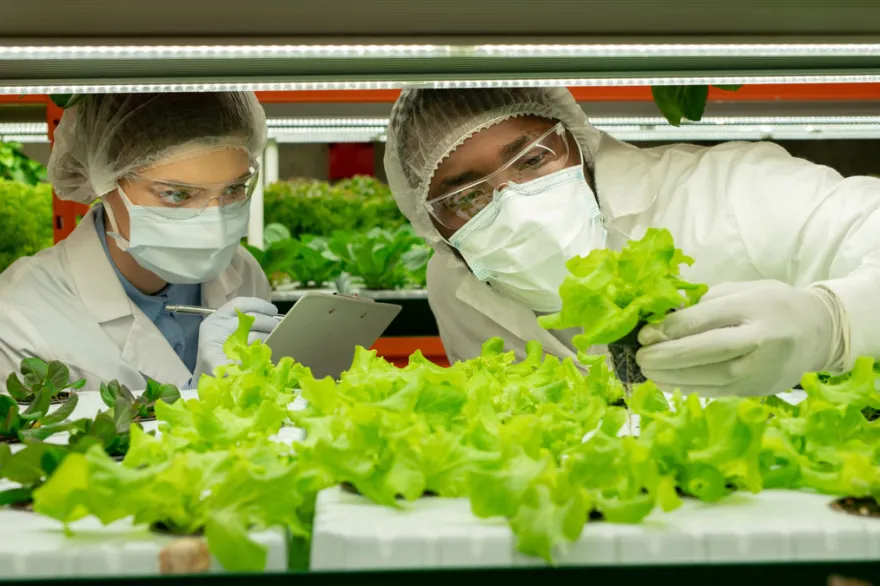
Careers in environmental health
Ohio State’s College of Public Health prepares you for a wide array of career options to improve the health of your community.
A Bachelor of Science degree in Public Health with an Environmental Public Health specialization or a Master of Public Health in Environmental Health Sciences qualifies you for a multitude of careers including those in:
- local, state, federal, or international government and non-profit organizations
- industry and manufacturing companies
- professional consulting firms
- health care
With a Master of Science or Doctor of Philosophy in environmental public health, you'll be prepared for positions in academia, industry or non-profit agencies. If you choose, you'll also be ready to pursue additional education and training in an aligned discipline such as medicine.
Education and training to become part of the next generation of environmental health scientists and environmental public health practitioners comes at a time of growth. In May 2020, the Centers for Disease Control and Prevention surveyed 1,700 environmental public health practitioners to assess the needs and opportunities of the workforce. Among its findings:
- 25% of environmental health professionals are older than 55 and 25% plan to retire by 2025
- the workforce is well-educated, with 62% having earned a bachelor’s degree
- 76% of environmental health professionals work in the practice area of food safety and protection
What do environmental public health practitioners do?
People interested in helping our environment become a safer and healthier place to live, work and play find fulfilling careers as environmental public health practitioners. The practice of environmental public health assures we have:

Clean air to breathe by protecting communities from the health effects of poor air quality

Clean water to drink by protecting communities and people from drinking contaminated surface or groundwater

Safe work environments by ensuring the practices in business, industry and manufacturing facilities prioritize health and safety for their employees

Safe food to eat by protecting communities and individuals from food-borne diseases

Safe soil and groundwater by assuring safe handling and disposal of solid, hazardous, infectious and nuclear waste

Safe interactions with animals by preventing humans from contracting diseases from animals

Safe water for recreation by preventing illness from contaminated streams, rivers and lakes

Health and safe homes and communities to live, work and play through several environmental health activities*
*The following activities assure we can live, work and play in safe and health homes and communities:
- abating public health nuisances
- bed bug education
- controlling rabies
- controlling asbestos and lead exposures
- education and enforcement of no-smoking laws
- education and enforcement of scrap tire management
- enforcing body art regulations
- enforcing RV and camp site safety and health regulations
- healthy indoor air quality education and enforcement
- noise pollution control
- natural and man-made disaster planning, response and recovery
- preventing accidental injuries
- preventing vector-borne and zoonotic diseases
- protecting pool safety and health
- protecting school safety and health
- sustainability and climate change education
Ohio State environmental public health career outcomes
Our Public Health Buckeyes find environmental health careers across the state and nation in a wide variety of industries, health departments, hospital systems, food safety, consulting agencies and more. Discover the types of jobs our graduates have landed.
Career outcomes
Opportunities for work in environmental health
Registered Environmental Health Specialist or Registered Sanitarian
Works for local and state health departments to prevent disease, death and disabilities by protecting communities and individuals from environmental hazards.
Environmental Health Specialists/Officers (U.S. Public Health Service Commissioned Corps)
Medical, health and engineering professionals who work on the front lines of public health to fight disease, conduct research and care for patients in underserved communities across the nation and world.
Public Health Administration
Works in a managerial or administrative role at local, state or federal government agencies.
Public Health Advisor
Works at the U.S. Centers for Disease Control and Prevention planning, developing and implementing public health programs in collaboration with local, state, federal and/or international governments and various public, non-profit, private and health-related organizations.
Food Safety Specialist
Works in corporations or non-profit organizations ensuring food is safe.
Consumer Safety Technician
Works at the U.S. Food and Drug Administration inspecting regulated products and manufacturers, analyzing samples of regulated products and reviewing imported products.
Infection Control/Public Health Coordinator
Prevents diseases from environmental hazards within the health care setting.
Food Inspector/Consumer Safety Specialist/Inspector
Works for the U.S. Department of Agriculture examining food animals in privately owned meat or poultry plants, to ensure that the product is not contaminated and sanitation procedures are maintained.
Environmental Health, Safety, Sustainability and Climate Change Specialist/Consultant
Works in the private business sector, government, and non-profit organizations providing consultation and expertise in environmental health, safety, sustainability and climate change.
Environmental Specialist
Works for the state EPAs protecting the environment and public health by ensuring that businesses, industry and manufacturing facilities are following environmental laws.
Environmental Scientist, Environmental Compliance Specialist
Works in business, industry and manufacturing facilities to ensure that they follow state and federal environmental protection laws.
Environmental Health and Safety Technician, Specialist or Coordinator
Assures businesses, industry and manufacturing facilities along with contractors/vendors follow federal, state and local safety and environmental regulations. Responsibilities include, but are not limited to, the areas of safety, environmental and risk management. This position is also known as environmental safety and health specialist or safety, health and environment specialist.
Occupational Safety and Health Technician or Specialist
Works in businesses, industry and manufacturing facilities to ensure a safe working environment for all employees by implementing and monitoring facility safety and health programs and developing controls for all areas of the property to reduce or eliminate exposures to health, safety hazards and casualty risks.
Environmental Scientist and Engineer
Works in industry, business, government or non-profit organizations and applies environmental health principles to the design of sanitation infrastructure.
Ground Water Protection Specialist
Works in industry, government or non-profit organizations to identify and prevent groundwater contamination.
Air Quality or Climate Change Specialist
Works in industry, government or non-profit organizations to identify and mitigate air quality hazards to prevent effects on communities and global warming and climate change.